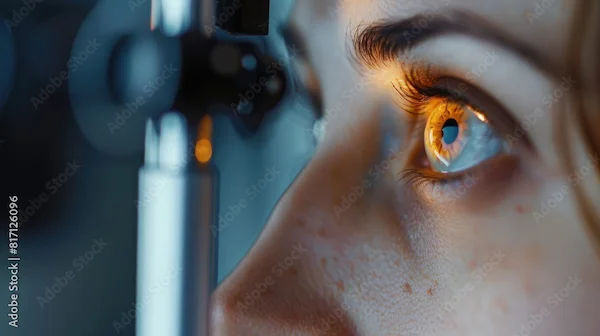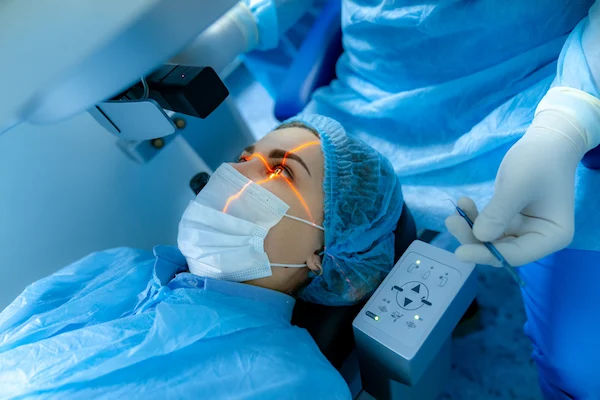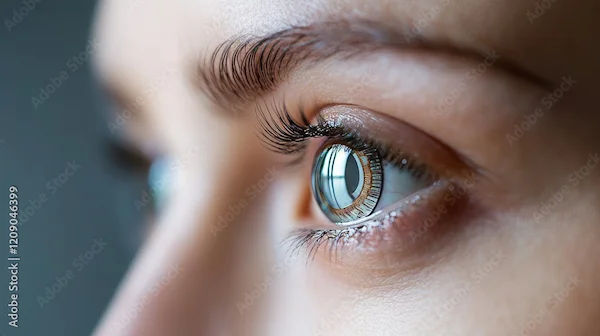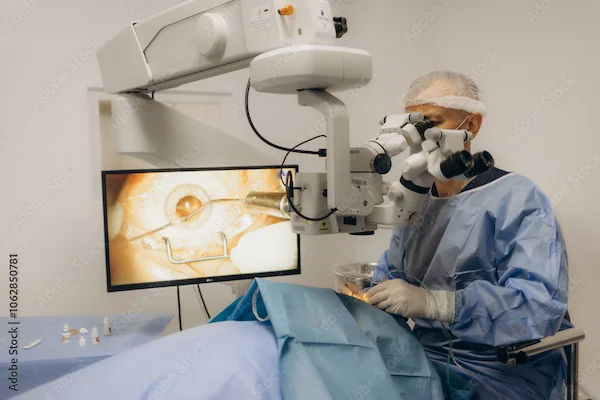Why Do I Have Stitches After Cataract Surgery?
Wondering why you have stitches after cataract surgery? Learn the reasons behind sutures, what to expect during recovery, and how to care for your eye properly.

Written by Dr.Sonia Bhatt
Last updated on 15th Jul, 2025
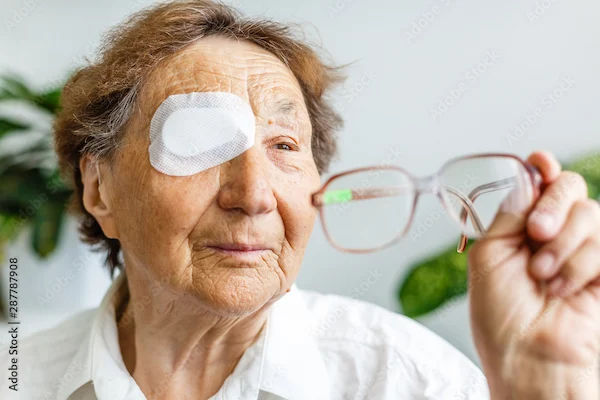
Introduction
Cataract surgery is a common and generally safe procedure that helps restore clear vision by removing the cloudy lens (cataract) and replacing it with an artificial one. While modern cataract surgery is often stitchless, some patients may still require stitches (sutures) depending on their specific case. If you’ve had stitches after cataract surgery, you might wonder why they were necessary and what to expect during recovery.
This article will explain why stitches are sometimes used, how they affect healing, and what you can do to ensure a smooth recovery.
Understanding Cataract Surgery
Before discussing stitches, let’s briefly understand how cataract surgery works:
1. Procedure: The surgeon makes a tiny incision in the cornea, the clear front part of the eye, to remove the cloudy lens.
2. Lens Replacement: An artificial intraocular lens (IOL) is placed in the eye to restore vision.
3. Healing: The incision is usually small enough to heal on its own without stitches.
However, in some cases, stitches may be needed.
Consult Top Specialists for Personalised Eye Health Advice
Why Are Stitches Used After Cataract Surgery?
Most cataract surgeries today use a technique called phacoemulsification, where the incision is so small (2-3 mm) that it seals itself and doesn’t require stitches. However, stitches may be necessary in certain situations:
1. Larger or Complicated Incisions
If the cataract is very dense or difficult to remove, the surgeon may need to make a larger incision, which may require stitches for proper healing.
Some surgical techniques, like extracapsular cataract extraction, involve bigger cuts that need sutures.
2. Weak or Abnormal Cornea
If the patient has a thin or weak cornea, stitches help keep the incision secure.
Conditions like keratoconus, a thinning cornea, may require additional support.
3. Previous Eye Surgeries or Trauma
Patients who have had prior eye surgeries, like glaucoma procedures, may need stitches for added stability.
Eye injuries or scarring may also make stitches necessary.
4. Surgeon’s Preference
Some surgeons prefer using a stitch for extra safety, especially in complex cases.
What to Expect If You Have Stitches
If your surgeon used stitches, here’s what you should know:
1. Types of Stitches Used
Dissolvable Stitches: Most eye stitches dissolve on their own over weeks or months.
Non-Dissolvable Stitches: Rarely, a stitch may need to be removed later by the doctor.
2. Healing Time
Stitches help the eye heal properly but may cause slight discomfort or a foreign-body sensation initially.
Full recovery usually takes a few weeks, but vision improvement can be noticed earlier.
3. Possible Side Effects
Mild irritation or scratchiness
Temporary blurred vision
Rarely, stitches can loosen or cause irritation, requiring a follow-up visit.
How to Care for Your Eye After Surgery
Proper care ensures a smooth recovery:
Do’s
Use prescribed eye drops to prevent infection and reduce inflammation.
Wear an eye shield at night to avoid accidental rubbing.
Keep the eye clean and avoid water splashes for at least a week.
Attend all follow-up visits so your doctor can monitor healing.
Don’ts
Avoid rubbing or pressing on the eye.
Skip swimming or heavy exercise for a few weeks.
Don’t use makeup or face creams near the eye until cleared by your doctor.
When to Call Your Doctor
While mild discomfort is normal, contact your eye surgeon if you experience:
Severe pain or sudden vision loss
Increased redness, swelling, or discharge
Flashes of light or new floaters, which could indicate a retinal issue
Final Thoughts
Stitches after cataract surgery are not always needed but may be used for safety in certain cases. Most dissolve on their own, and proper care ensures a smooth recovery. If you have concerns about your stitches or healing process, don’t hesitate to consult your eye doctor.
If you’ve recently had cataract surgery or are preparing for one, Apollo 24|7 offers expert consultations and follow-up care. You can book an appointment with an ophthalmologist to discuss any concerns and ensure optimal recovery.
Consult Top Eye Specialists
Consult Top Specialists for Personalised Eye Health Advice
Dr. S Venkateswaran
Ophthalmologist
35 Years • MBBS, PGD (OPTHALMOLOGY)
Tiruvannamalai
Shiva Eye And General Hospital, Tiruvannamalai
Dr. Akashdipta Saha
Ophthalmologist
4 Years • MBBS, MD(Ophthalmology), Fellowship in Retina & Vitreous
Delhi
AIIMS, Delhi
Dr. Harshavardhan Reddy
Ophthalmologist
3 Years • MBBS , MS (Ophthalmology)
Hyderabad
Ram Dev Rao Hospital, Hyderabad
Dr. Kakarla Roopa
Ophthalmologist
3 Years • MBBS MS Ophthalmology
Tirupati
Anna Gowri Hospital, Tirupati

Dr. Sneha T Khurana
Ophthalmologist
9 Years • MBBS, MS Ophthalmology
Gurugram
GS multispeciality clinic, Gurugram
Consult Top Eye Specialists
Dr. S Venkateswaran
Ophthalmologist
35 Years • MBBS, PGD (OPTHALMOLOGY)
Tiruvannamalai
Shiva Eye And General Hospital, Tiruvannamalai
Dr. Akashdipta Saha
Ophthalmologist
4 Years • MBBS, MD(Ophthalmology), Fellowship in Retina & Vitreous
Delhi
AIIMS, Delhi
Dr. Harshavardhan Reddy
Ophthalmologist
3 Years • MBBS , MS (Ophthalmology)
Hyderabad
Ram Dev Rao Hospital, Hyderabad
Dr. Kakarla Roopa
Ophthalmologist
3 Years • MBBS MS Ophthalmology
Tirupati
Anna Gowri Hospital, Tirupati

Dr. Sneha T Khurana
Ophthalmologist
9 Years • MBBS, MS Ophthalmology
Gurugram
GS multispeciality clinic, Gurugram
